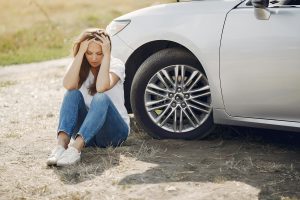Go to Page Section:
If you wish to pursue a personal injury claim due to a car accident, the strength of your evidence will heavily influence the outcome of your case and potential compensation.
Although the evidence that you can collect at the scene of the accident will be crucial, seeking legal help from an accident lawyer in Miami is still recommended.

A lawyer can help you gather evidence and even strengthen your case in additional ways.
For example, suppose the accident aggravated your pre-existing injuries.
In that case, a lawyer can work alongside a healthcare professional to better your claim which might give you a higher chance for obtaining fair compensation.
If your car accident claim is disputed or you face other challenges related to fault and liability, a lawyer can work with other experts such as accident reconstruction professionals or others so that you can unveil the circumstances that led to the accident and hold all the responsible parties liable.
To understand exactly how you can strengthen your case, here is what you should know about what kind of evidence you should collect at the scene of the accident:
Photos and Videos
Visual evidence can be a powerful indicator of the types of damages you have suffered and might even reveal what conditions played a role in it.
In some instances, it can showcase how the accident even occurred.
You should take photos of your injuries if visible and vehicle damage.
Do not focus solely on the damage to your vehicle.
Try to take photos of all the vehicles involved in the collision and highlight the damage from various angles.
Capture wide shots of the accident scene, including road conditions and landmarks.
This is crucial to showcase the damage, argue how the accident might have occurred, or expose the hazardous conditions that may have contributed to the incident.
If there are any skid marks or debris, try to capture it and inspect your surroundings.
If there are CCTV cameras around, take a note and let your lawyer know later so that you can obtain the recording.
If you have a dashcam in your car, preserve the videos and take note if the other driver has a dashcam.
Witness Information
If there are eyewitnesses around, be it pedestrians or other drivers, you should collect their contact information.
Write down their names, phone numbers, and addresses.
If possible, you can even ask them for a brief statement concerning what they saw.
This will not only give you some peace of mind, but it will also be useful to know who you should speak with later if additional statements are necessary.
Witnesses can completely turn around a claim so you should never disregard them.
Speak with them calmly and politely.
Their dash cams may have captured the event so you can ask them to preserve the footage.
Driver Information
Exchange information with the other drivers involved in the crash.
Write down their names, phone numbers, insurance details, and vehicle registration numbers.
You can take a photo of the other driver’s license or license plates for identification and verification if necessary.
Ensure you have the details of all involved parties’ insurance policies.
Police Report
If the car accident resulted in injury, death, or property damage exceeding $500, you must report it to authorities.
Ensure that a report is filed as required under Florida law.
Obtain the report number and the responding officer’s contact information.
Injury Documentation
If you receive medical attention at the scene, document everything and take photos of your injuries and those of others involved.
It is crucial to seek and accept medical aid even if you feel fine.
Some injuries do not always come with immediate pain symptoms.
The medical records that will be issued will be crucial in correlating your injuries with the accident and seeking compensation.
Other Relevant Evidence
With the evidence mentioned above, you should have a solid claim.
However, an accident is a traumatic experience and many details can be lost relatively quickly after the incident.
Therefore, it is a good idea to write down your account of the accident while it’s fresh in your mind, including details like time, location, and events leading up to the crash.
Useful Tips When Pursuing a Claim
Being involved in a car accident is never easy to deal with, especially if you are injured and there are issues in establishing liability.
However, it is essential to prioritize your health, gather evidence, and also consider the following tips:
Stay Calm
Try to remain calm and composed while gathering evidence as being angry can make you omit important details and lose focus.
Avoid Admitting Fault
Do not admit fault or discuss details of the accident with others at the scene, except if you only want to ask witnesses for a summary of what they saw.
Generally, you should leave the insurance companies and legal representatives to discuss the details.
Seek Legal Advice
It is worth considering consulting with an attorney for legal advice, especially if your injuries are severe or the damages are significant.
A lawyer can help you understand your legal options, gather the necessary evidence to strengthen your claim, and help you pursue compensation.
For example, if your accident prevented you from working, you will lose wages that you should also pursue as damages in your claim.
When injuries are severe, there is also a high chance that a victim will suffer mental trauma.
This can also be compensated with appropriate evidence.
In instances where your accident involved a commercial vehicle, such as a truck, liability might not always be so evident.
This is because the truck driver’s company and therefore employer, may have been negligent in their hiring practices or other obligations.
In this situation, you can also hold the company and not just the truck driver liable, or even other third parties.
Everything depends on the investigation and the available evidence.
Speak with a lawyer to learn more as most offer free consultations.


Leave a Reply